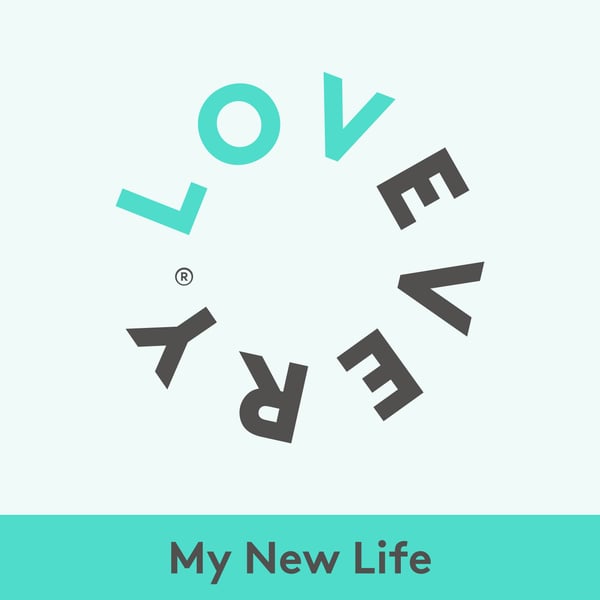Montessori handwriting
My New Life
Kate Garlinge
4.7 • 654 Ratings
🗓️ 8 May 2024
⏱️ 22 minutes
🧾️ Download transcript
Summary
The Montessori method is rooted in the idea that children can—and should—be empowered to do things on their own. On this episode of My New Life, we consider handwriting through a Montessori lens. But how much independence can we truly expect from a child who is forming words on paper for the first time?
You may be surprised to learn that a toddler can start practicing handwriting as early as age 3. It all comes down to building the foundations through play! Host Jessica Rolph is joined by Julia Volkman, who wrote her thesis at Harvard on the moveable alphabet. Julia, founder of Maitri Learning, says writing comes online for developing brains before reading.
Takeaways:
-
Julia points out that a child’s capacity to understand letter sounds is there before their capacity to write them or read them. The Montessori moveable alphabet is extremely helpful in familiarizing children with how these sounds fit together. They move into place the tiles that make the sounds mmm — ooo — pp and, voila, they have a word! MOP.
-
The more a child succeeds at building these words, the more readily they will start to read, and then write… and over time, their spelling will refine. This is the gradual, organic process that happens when they have the right conditions and the materials to support their learning.
-
When it comes to handwriting, the physical aspects are often what we think about: for example, the muscular ability to hold the pencil. But there are also intellectual aspects like the desire to write — and knowing enough about the world around them to find inspiration.
-
Vocabulary and sequencing also play important roles. Vocabulary development comes naturally with your child’s exposure to lots of songs, rhymes and books. Give them the words for everything — and remember to keep it playful!
-
Montessori uses lots of indirect preparation, like scrubbing and preparing food to strengthen hand muscles and coordination. You can also practice sequencing in the kitchen by laying out ingredients from left to right, in the order you will use them.
Mentioned in this episode:
Brought to you by Lovevery.com
Receive weekly emails about your child’s development, and stay in the know about new play essentials, promos, and more by signing up at Lovevery.com
Follow Lovevery and Jessica Rolph on Instagram
Transcript
Click on a timestamp to play from that location
| 0:00.0 | Welcome to My New Life, a Love Every podcast. |
| 0:08.4 | I'm your host, Jessica Rolfe. |
| 0:10.7 | In this Montessori miniseries, we interview experts on literacy, math, and handwriting. |
| 0:16.4 | Montessori programs only exist in about 7% of U.S. zip codes. |
| 0:20.6 | At Lovevery, we want to make Montessori universally accessible |
| 0:23.7 | and help you bring the teachings and materials into your home. |
| 0:28.2 | This mini-series aims to make that easier for you. |
| 0:33.7 | The Montessori method is rooted in the idea that children can and should be empowered to do things on their own. |
| 0:40.8 | Today we consider handwriting through a Montessori lens. But how much independence can we truly expect from a child who is forming words on paper for the first time? |
| 0:50.7 | You may be surprised to learn that a toddler can start practicing handwriting as early as age three. |
| 0:57.7 | It all comes down to building the foundations through, you guessed it, play. |
| 1:03.2 | Today's guest wrote her thesis at Harvard on the movable alphabet and says writing comes online for developing brains before reading. |
| 1:12.2 | Her name is Julia Volkman, and she joins us from the headquarters of Matry Learning in Massachusetts. |
| 1:17.8 | So talk to me about your research on this movable alphabet that is a core part of literacy in Montessori. |
| 1:25.9 | We know that Montessori is in about 7% of U.S. Zip |
| 1:29.6 | codes. Lovevery has access to about 60% of U.S. zip codes. We included a movable alphabet game |
| 1:35.8 | in one of our play kits for four-year-olds. I want our community to understand why the |
| 1:41.5 | movable alphabet is such a valuable tool for understanding all the things, |
| 1:47.0 | writing, reading, sounding out letters, spelling. Talk to me of this progression of skills. |
| 1:53.1 | So when I was working in public school, I was having to give children these tests, right? You have to |
| 1:59.2 | give them assessments all the time where you're asking them to take a pencil and write words, right? Or you're asking them, |
| 2:05.2 | just throwing them a sheet of words and saying, okay, read this. These are children who aren't |
... |
Please login to see the full transcript.
Disclaimer: The podcast and artwork embedded on this page are from Kate Garlinge, and are the property of its owner and not affiliated with or endorsed by Tapesearch.
Generated transcripts are the property of Kate Garlinge and are distributed freely under the Fair Use doctrine. Transcripts generated by Tapesearch are not guaranteed to be accurate.
Copyright © Tapesearch 2025.

